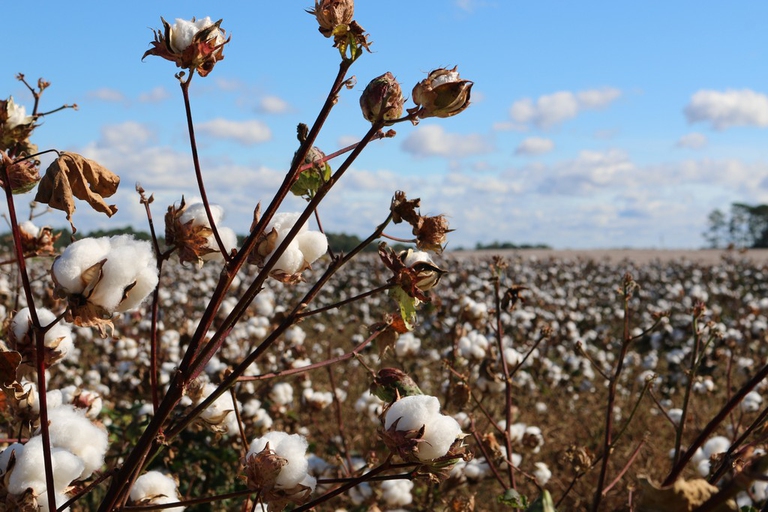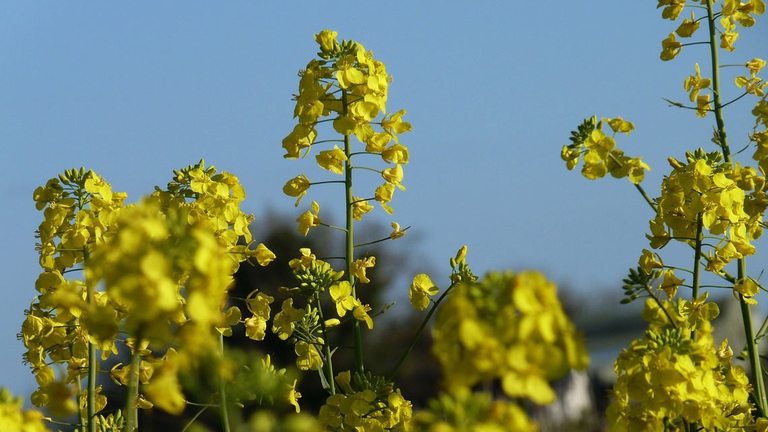
Three people putting the protection of the planet before themselves. Three powerful stories from Latin America, the deadliest region for environmental activists.
The fraud and corruption witnessed in the illegal introduction of Bt cotton in India are now being repeated with GM mustard. Farmers and our biodiversity were sacrificed for Monsanto’s profits.
For two decades the Poison Cartel – the “big six” pesticide and GMO companies owning the world’s seeds – has been corrupting our governments, our regulatory agencies and some of our scientists to push their hazardous GMOs that don’t work and claim patents and royalties based on scientific fraud.
Monsanto’s corruption of regulatory agencies and attack on science is being exposed by the day. In the recently released Monsanto Papers, made public through their discovery in a court case filed by 100 cancer victims against Monsanto, it has become evident that not only are Monsanto’s products (Roundup and Roundup Ready crops) carcinogenic, but Monsanto has attacked the United Nation’s World Health Organisation (WHO) and scientists whose research establishes Monsanto’s links to cancer.
Read more: The fight against GM mustard in India is crucial for the global war on GMOs
The fraud related to the illegal introduction of GMOs in India began on 10 March 1995, when Mahyco (Maharastra Hybrid Seeds Company) imported 100 grammes of Monsanto’s Bt cotton seed without approval from the Genetic Engineering Appraisal Committee (GEAC), which is the only body that can grant permission for importing genetically engineered substances (seeds, in the present case). In 1998, Monsanto entered into an exclusive agreement with Mahyco and formed a joint venture to introduce genetically modified Bt cotton in India.
In 1998 Monsanto-Mahyco illegally started open field trials of Bt cotton in 40 locations, and I had to file a case (Writ Petition No. 71 of 1999) against them and the government in the Supreme Court to uphold our biosafety laws.
In March 2002 the Ministry of the Environment admitted in the high court that Bt cotton poses major risks. In an application in our case we reiterated our original prayer – that no GMO, including Bt cotton, should be allowed until an independent, robust, regulatory process was in place. We also asked for an investigation into how Bt cotton was illegally spreading in India and compensation to farmers.
Yet, a few days later Bt cotton, which had previously been declared hazardous by the GEAC, was declared safe in the case of Monsanto, and approval was given to Monsanto to introduce Bollgard I bt cotton. This is a blatant display of corruption and fraud. Indian farmers and our biodiversity were sacrificed for Monsanto’s profits.
Our studies show that nearly 60 per cent of the beneficial soil organisms have been killed by the Bt toxin in the cotton fields of Vidarbha, in the western state of Maharashtra. There are no pollinators on Bt cotton plants, and the honey industry in Bt cotton areas has collapsed. Even at the trial stage it was clear that Bt cotton doesn’t work as a pest-control technology. New pests are being created and the bollworm has evolved resistance. The primary justification for the genetic engineering of Bt toxin into crops is that this will reduce the use of insecticides. One of the Monsanto brochures had a picture of a few worms and stated: “You will see these in your cotton and that’s okay. Don’t spray”. However, new pests have emerged, and the pink bollworm has evolved resistance and farmers are using more pesticides than ever.
The company misled the farmers and the government failed to regulate the company according to the Biosafety Regulations. The government’s failure to regulate GMOs and the court’s failure to have regulations implemented honestly and scientifically have cost hundreds of thousands of farmers suicides (most of the 300,000 suicides are in the cotton belt which is now a GMO cotton belt).
Monsanto has used the failure of its technology as an excuse to sell Bollard II with higher prices and higher illegal royalties. Monsanto can’t legally collect royalties on seeds in India because India’s patent laws don’t recognise seeds, plants and animals as “inventions”: Article 3 (j) clearly excludes seeds and plants from patentability.
When the government passed a seed price control order Monsanto took the government to court and the case was dismissed only after our intervention. Monsanto is now challenging Art. 3 (j) of our Patent Act in a case in the High Court in Delhi in which I have had to also intervene. Monsanto controls 95 per cent of the cotton seed sector, and when the Competition Commission started an investigation on the monopoly, it took the commission to court.
The fraud and corruption we have witnessed in Bt cotton at high costs to farmers and the environment are now being repeated with GM mustard. The GM mustard is genetically engineered mustard based on multiple genetic transformations, and introduction of genes from unrelated organisms. The major scientific fraud in the promotion of GM mustard is to deny that it is herbicide resistant, in spite of the fact that is has bar gene which produces the phosphinothricin acetyltransferase (PAT) protein for resistance to the herbicide glufosinate ammonium (Basta).
A second scientific fraud is claiming that GM mustard, a crop that cross-pollinates vigorously, poses no risks of genetic contamination through pollination.
Mustard is our food, our culture. We eat the leaves as sarson ka saag, the seeds as seasoning, the oil for cooking and for healing, as studies have shown that mustard oil helps in cardiovascular diseases. Mustard is a food for humans and animals. Yet no feeding trials were done. The assessment concludes – without any scientific basis – that GM mustard does “not pose any risk of causing any adverse effects on human and animal health and safety”. No feeding trials have been done for any food in the Indian diet. And yet the unscientific claim is being made that it is safe. Non-tests are not proof of safety.
Promoting a mustard with herbicide resistant traits is in violation of the recommendations of the Technical Expert Committee of the Supreme Court which has clearly stated that no herbicide-tolerant GMO, and no GM crop of which we are a centre of diversity should be allowed, in order to protect our biodiversity, an obligation under the Biodiversity Act.
Most mustard-growing states have said they will not allow GM mustard. Ignoring the rights of the states to make sovereign decisions on GMOs is a violation of the Constitution and the Biosafety framework. The tragic lesson from Bt cotton should help us avoid destruction of the lives of our farmers and our rich biodiversity heritage. The integrity of science, of our sovereignty, of our biodiversity, of our democracy is at stake in the Bt Cotton and GM mustard case. 20 years of corruption of governance and scientific fraud is enough.
Siamo anche su WhatsApp. Segui il canale ufficiale LifeGate per restare aggiornata, aggiornato sulle ultime notizie e sulle nostre attività.
![]()
Quest'opera è distribuita con Licenza Creative Commons Attribuzione - Non commerciale - Non opere derivate 4.0 Internazionale.
Three people putting the protection of the planet before themselves. Three powerful stories from Latin America, the deadliest region for environmental activists.
Influential scientist, activist and author Vandana Shiva fights to protect biological and cultural diversity, and against GMOs.
Kimiko Hirata has blocked 13 new coal plants in Japan, but she hasn’t done it alone. The 2021 Goldman Prize winner tells us about her movement.
The Goldman Environmental Prize, the “green Nobel Prize”, is awarded annually to extraordinary activists fighting for the well-being of the planet.
We talk to Shaama Sandooyea, activist and marine biologist from Mauritius onboard Greenpeace’s Arctic Sunrise ship in the heart of the Indian Ocean.
Arrested for supporting farmers. The alarming detention of Disha Ravi, a 22-year-old Indian activist at the fore of the Fridays for Future movement.
Water defender Eugene Simonov’s mission is to protect rivers and their biodiversity along the borders of Russia, China and Mongolia.
Chibeze Ezekiel, winner of the 2020 Goldman Environmental Prize for Africa, is fighting to guide new generations towards a renewable future.
Leydy Pech, winner of the 2020 Goldman Environmental Prize for North America, is the beekeeper who defended Mexican Maya land against the agro-industry.










